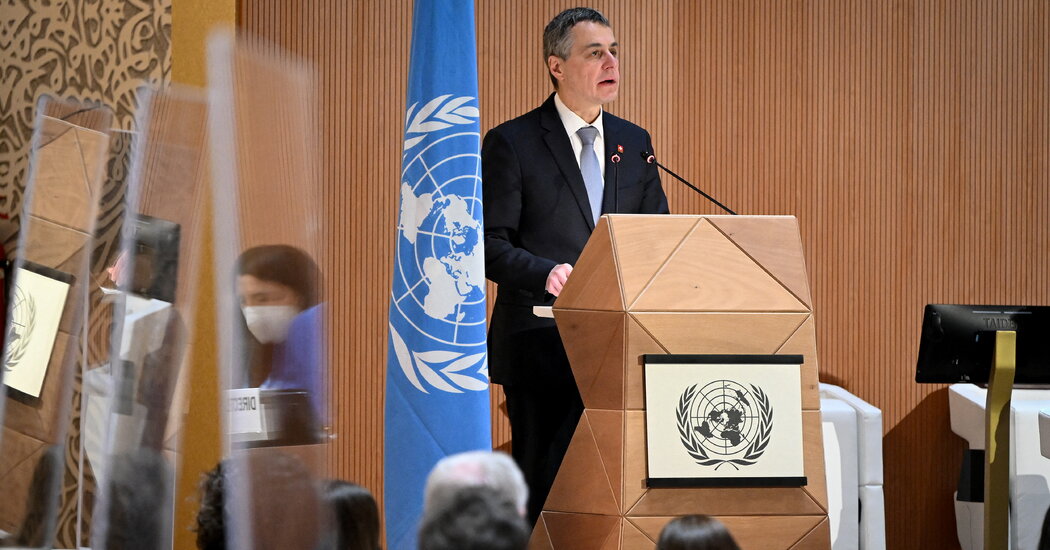
GENEVA — Switzerland, a favorite destination for Russian oligarchs and their money, announced on Monday that it would freeze Russian financial assets in the country, setting aside a deeply rooted tradition of neutrality to join the European Union and a growing number of nations seeking to penalize Russia for the invasion of Ukraine.
After a meeting with the Swiss Federal Council, Switzerland’s president, Ignazio Cassis, said that the country would immediately freeze the assets of Russia’s president, Vladimir V. Putin, Prime Minister Mikhail V. Mishustin and Foreign Minister Sergey V. Lavrov, as well as all 367 individuals sanctioned last week by the European Union.
Switzerland said it was departing from its usual policy of neutrality because of “the unprecedented military attack by Russia on a sovereign European state,” but expressed a willingness to help mediate in the conflict. It also joined European neighbors in closing its airspace to Russian aircraft, except for humanitarian or diplomatic purposes. But said it would evaluate whether to join in subsequent E.U. sanctions on a case-by-case basis.
Mr. Lavrov, who was scheduled to be in Geneva on Tuesday to address the United Nations Human Rights Council, will no longer make the trip because of the flight ban, Russia’s mission to the United Nations in Geneva said on Twitter.
Swiss national bank data showed that Russian companies and individuals held assets worth more than $11 billion in Swiss banks in 2020. As a hub for the global commodities trade, Switzerland also hosts numerous companies that trade Russian oil and other commodities.
The decision came amid mounting condemnation of Russia’s invasion of Ukraine, which saw thousands of antiwar protesters march in Bern, Switzerland’s capital, over the weekend. Demonstrators chanted for an end to “Putin’s war” and criticized the government’s initially cautious response to the crisis.
Switzerland cherishes a reputation for neutrality that has established Geneva as a home to the United Nations and a host to peace talks in numerous conflicts, including the wars in Korea and Vietnam. Recently, Geneva was the venue for last year’s summit between President Biden and Mr. Putin.
Mr. Cassis expressed concern that the Alpine nation’s credibility as a neutral diplomatic intermediary would suffer if it automatically followed suit with E.U. sanctions. Initially, Switzerland said last week that it would enforce travel bans against Russians on the E.U. sanctions list and stop Swiss banks from accepting new Russian money — but stopped short of cutting off the individuals’ access to their bank accounts.
Since then, images of bloodied Ukrainian civilians and apartments damaged by shelling have fueled popular anger against Russia, Switzerland has adopted a tougher tone as well. Mr. Cassis told the United Nations Human Rights Council on Monday that Russia’s attack on Ukraine was a flagrant violation of international law.
“There has been no provocation which could have justified such an intervention,” he said.




